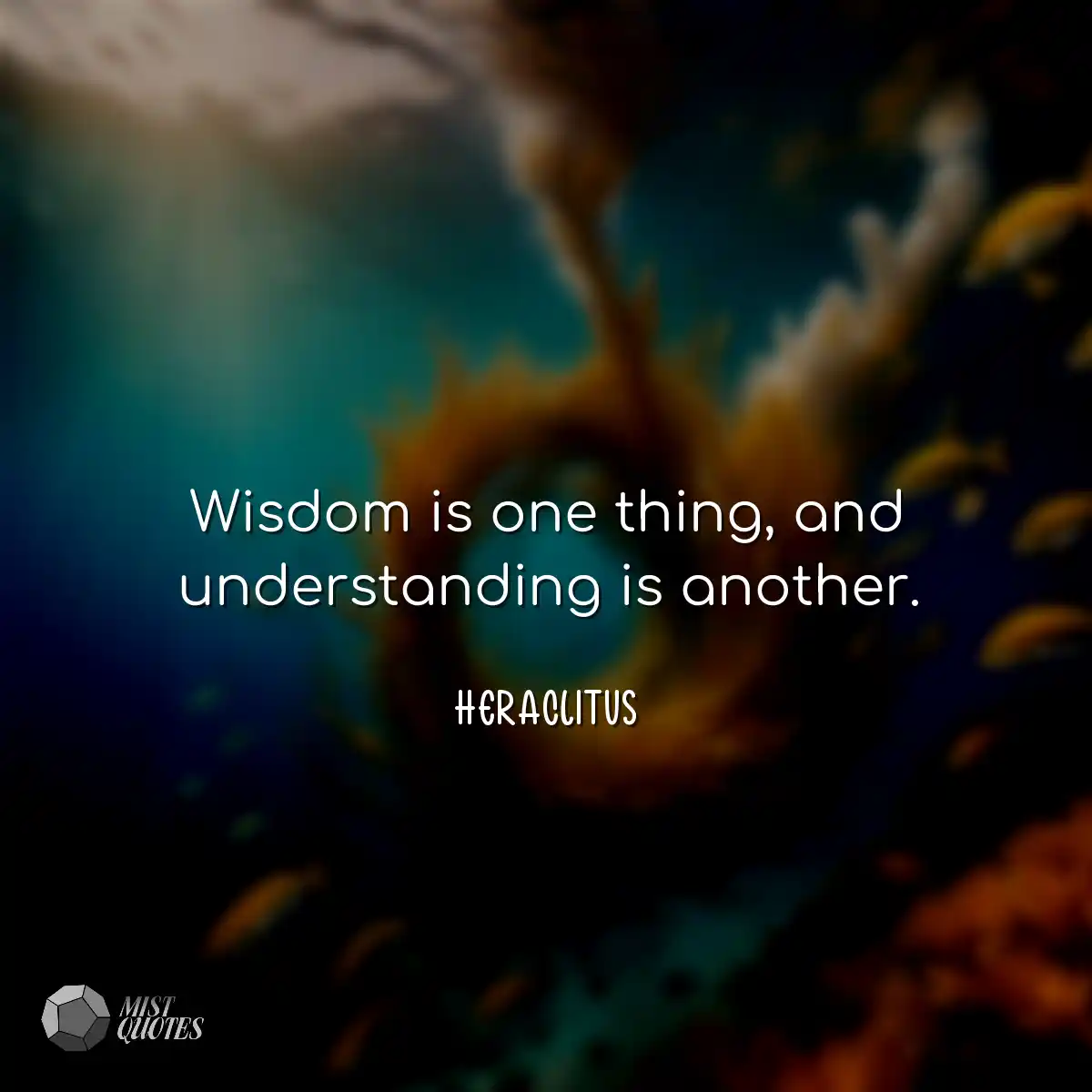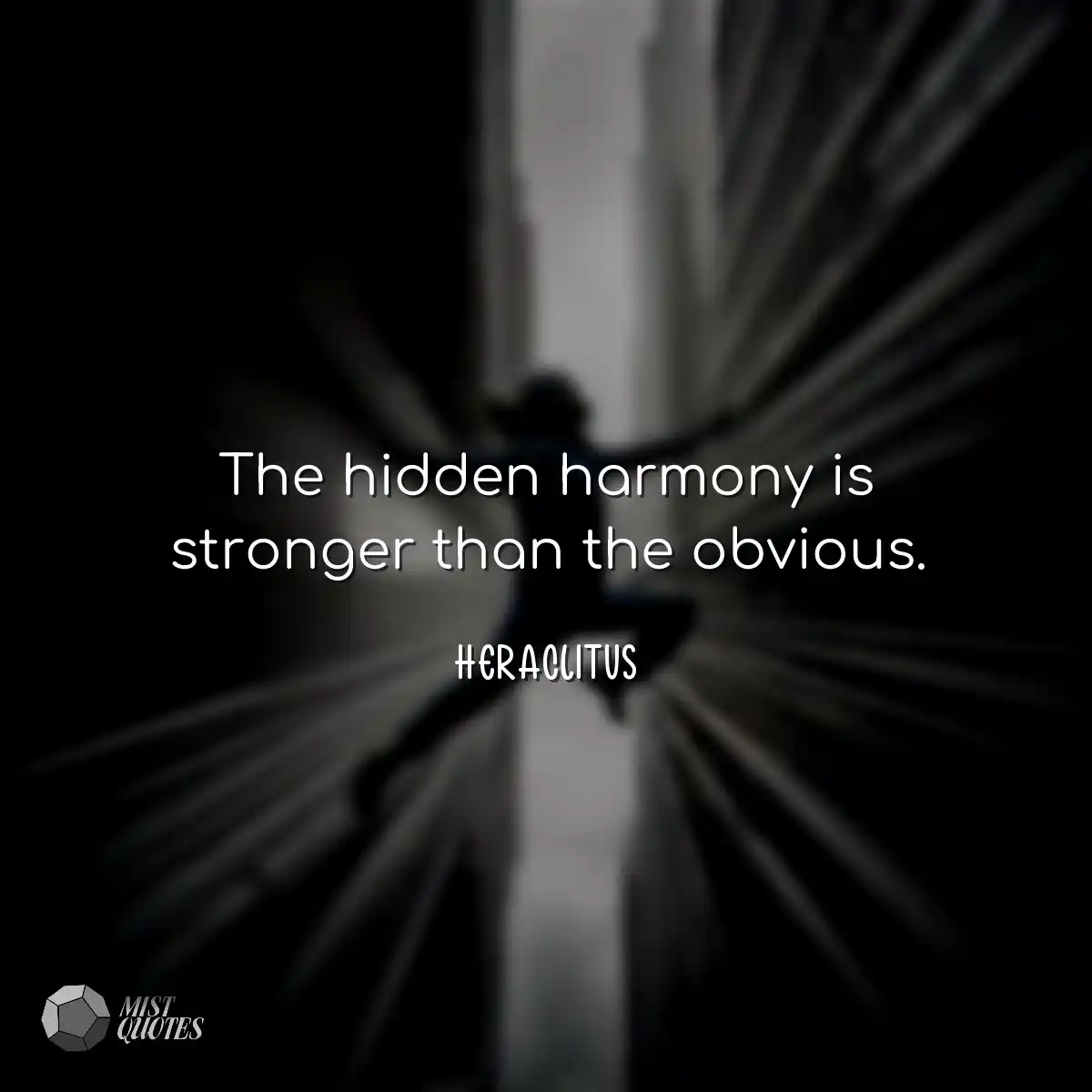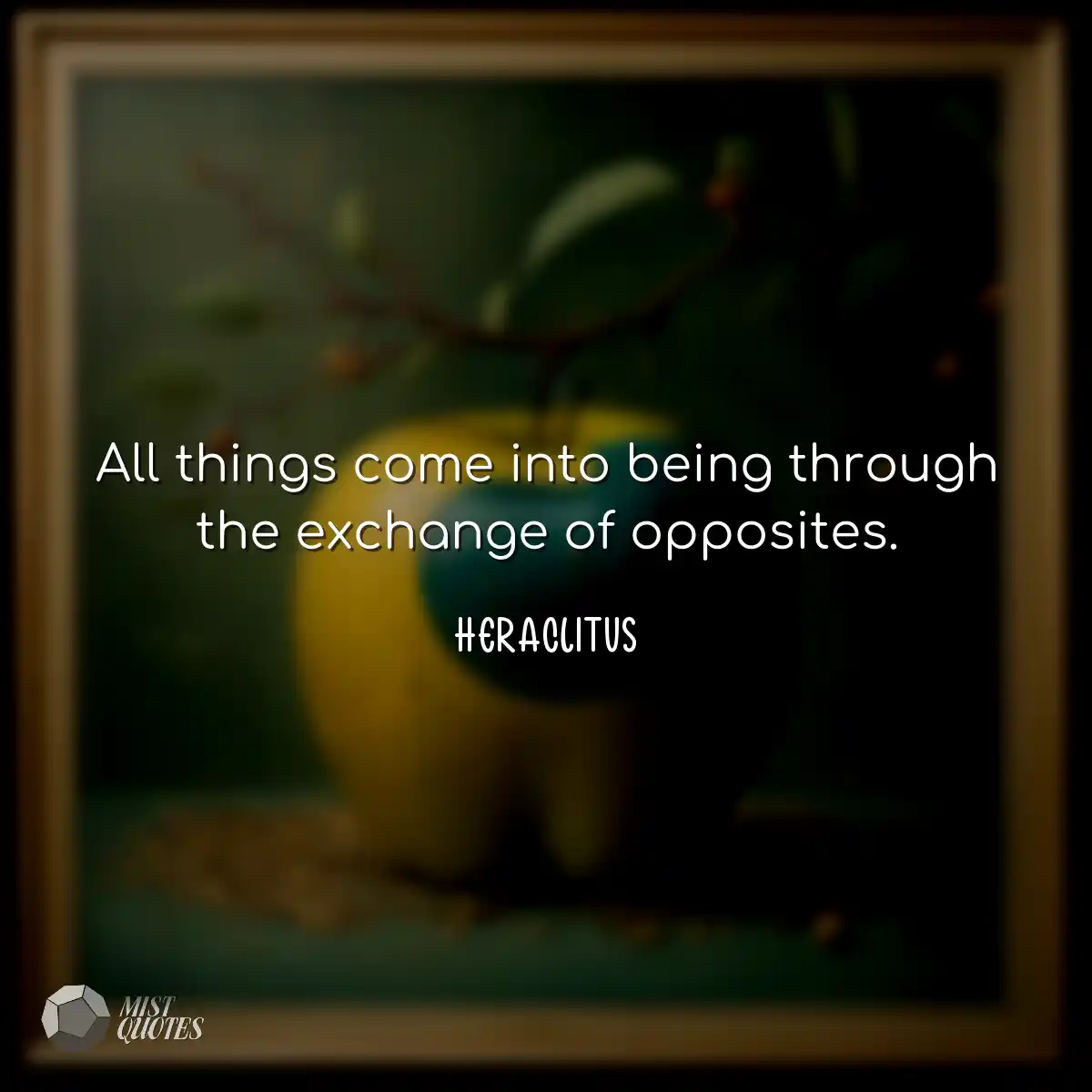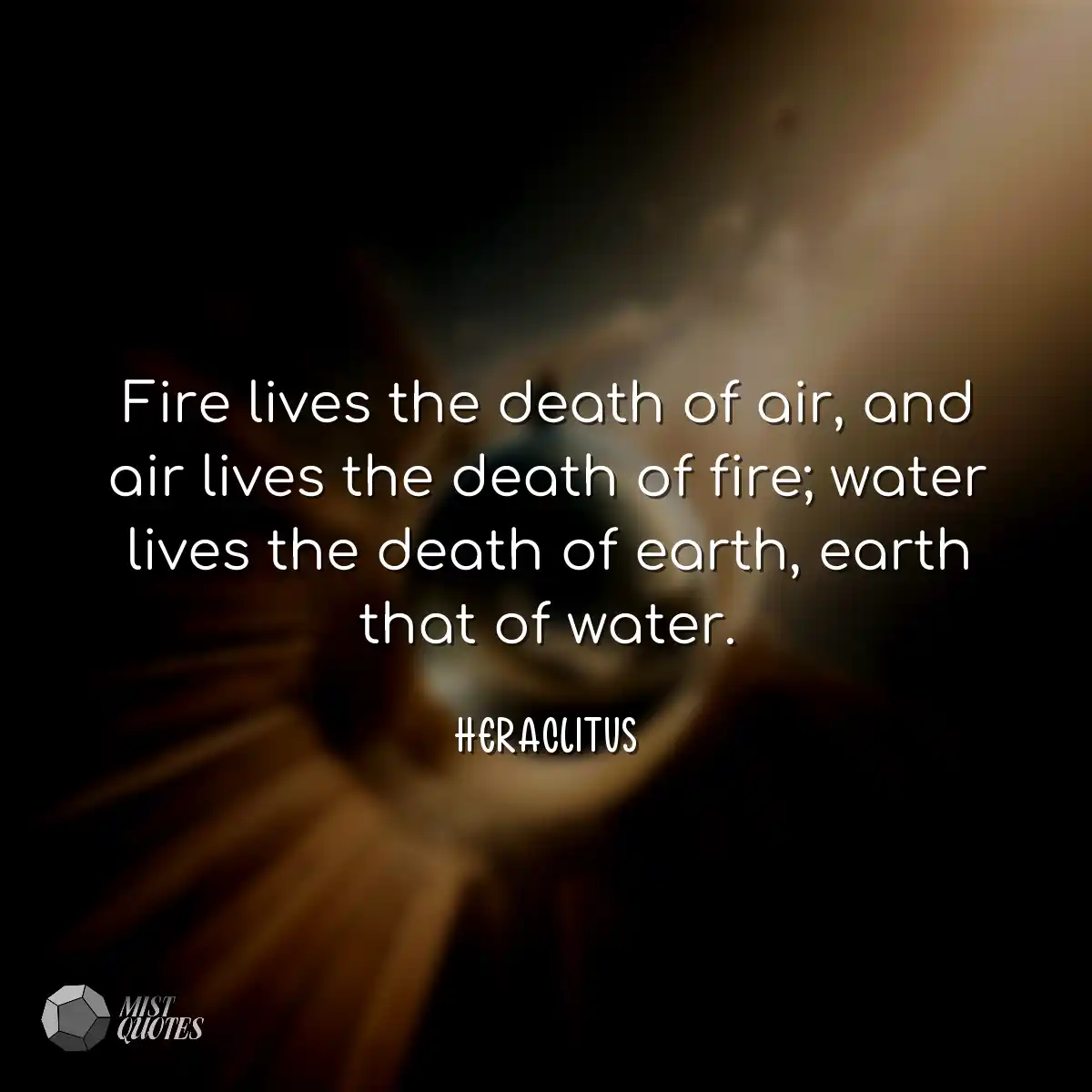
Heraclitus
Philosopher

The world is nothing but a great book, and those who do not travel read only a page.

Wisdom is one thing, and understanding is another.

It is in changing that things find purpose.

Even sleepers are workers and collaborators on what goes on in the universe.

You cannot find the boundaries of the soul, even by traveling every path, so deep is its logos.

The most beautiful order is a heap of sweepings piled up at random.

The hidden harmony is stronger than the obvious.

All things come into being through the exchange of opposites.

Fire lives the death of air, and air lives the death of fire; water lives the death of earth, earth that of water.

Happiness is a scattered, fragmented thing.
Heraclitus, a pre-Socratic Greek philosopher, was born in Ephesus around 535 BCE. He is widely recognized for his profound contributions to philosophy, particularly in the field of metaphysics. Despite his enigmatic and often cryptic style of writing, Heraclitus left an enduring legacy through his philosophical concepts and ideas. This article aims to delve into the life of Heraclitus, highlighting his notable accomplishments and shedding light on the profound impact he had on Western philosophy.
Heraclitus was born into an aristocratic family in the city of Ephesus, situated in modern-day Turkey. Although not much is known about his early life, it is believed that he received a comprehensive education in philosophy, literature, and science. His exposure to various disciplines shaped his intellectual curiosity and laid the foundation for his philosophical pursuits.
One of Heraclitus' most significant contributions to philosophy lies in his concept of the "unity of opposites." He posited that everything in the world is characterized by a constant state of change and flux. He famously proclaimed, "Everything flows; nothing stands still." According to Heraclitus, the universe is in a perpetual state of transformation, where opposites such as day and night, hot and cold, and life and death are interconnected and inseparable.
Heraclitus introduced the concept of "logos," an underlying principle that governs the cosmos. Logos refers to the rational and divine order that permeates the universe, providing cohesion and structure. Heraclitus believed that the logos dictated the eternal cycle of creation and destruction, ensuring balance and harmony in the world. His ideas on logos foreshadowed later developments in Stoic philosophy and influenced subsequent philosophical schools.
In his philosophical inquiries, Heraclitus explored the nature of knowledge and the limitations of human understanding. He argued that true wisdom could only be attained through self-awareness and a deep understanding of the underlying principles of the universe. Heraclitus emphasized the importance of introspection and critical thinking, encouraging individuals to question their assumptions and seek profound insights into the nature of reality.
Heraclitus contemplated the nature of ethics and the role of human beings in the cosmic order. He believed that individuals should align themselves with the natural order of the universe, acknowledging their place within the interconnected web of existence. Heraclitus advocated for a balanced and virtuous life, emphasizing the cultivation of self-discipline, moderation, and harmony with nature. His ethical teachings emphasized the importance of living in accordance with the logos.
Despite his relative obscurity during his lifetime, Heraclitus' ideas gained prominence and influenced many subsequent philosophers, including Plato and Aristotle. His concepts of flux, the unity of opposites, and the logos laid the groundwork for dialectics and influenced the development of Western philosophical traditions. Heraclitus' emphasis on change and the interconnectedness of all things resonated with later thinkers, shaping their understanding of the world.
Heraclitus, the enigmatic Greek philosopher, made profound contributions to the field of metaphysics and philosophy. His ideas on the unity of opposites, the flux of the universe, the logos, and ethics continue to captivate scholars and shape philosophical discourse. Through his thought-provoking concepts and unique perspective on reality, Heraclitus left an indelible mark on Western philosophy, challenging individuals to contemplate the nature of existence and their place within the cosmic order.
Recent Quotes
"To help a friend in need is easy, but to give him your time is not always opportune."
Charlie Chaplin
"Life can be wonderful if you're not afraid of it. All it takes is courage, imagination… and a little dough."
Charlie Chaplin
